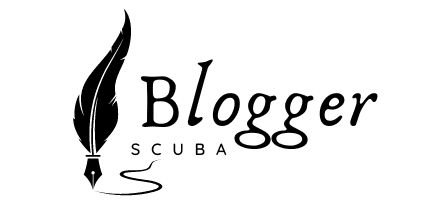Learn arabic online: personalized lessons for all levels

Learning Arabic online offers tailored lessons that adapt to your level and schedule, whether you’re a complete beginner or looking to improve. Structured around recognized proficiency standards, these courses combine language skills with cultural insights, making your journey practical and engaging. With flexible timing and expert native tutors, mastering Arabic becomes accessible and effective for personal, professional, or travel goals.
Essential Steps and Resources for Learning Arabic Online
You can view more details on this page: https://www.al-kunuz.com/en/private-arabic. Starting your Arabic journey online is often motivated by diverse needs: educational advancement, travel, professional expansion, or religious study. Each goal determines the approach and resources best suited to the learner.
A lire également : What Is the Future of Self-Healing Materials in High-Tech Applications?
Modern Standard Arabic (MSA) is widely recommended for those pursuing academic or professional proficiency, as it forms the basis of media and formal communication. For conversational fluency and cultural connection, selecting a regional dialect such as Egyptian or Levantine can be valuable. Many platforms present both MSA and major dialect options, allowing for tailored study paths.
Online Arabic learning now spans a spectrum of resources: structured course platforms, language learning apps, immersive reading and speaking clubs, and virtual tutors. Learners often combine these—using interactive online courses, self-paced apps, and free Arabic language exercises to maximize retention. Flexible schedules and small group sessions fit around busy lives, while resources such as interactive alphabet tutorials or Arabic grammar guides for beginners provide foundational knowledge.
En parallèle : How do sensory gardens benefit individuals with autism?
For independent study, digital libraries and open-access sites also offer extensive practice materials, quizzes, and e-books supporting all levels.
Structured Arabic Learning Paths and Course Options
Most structured online Arabic programs follow modular formats aligned with international standards. These programs segment learning into clear CEFR levels with distinct pathways for beginners, intermediates, and advanced learners. Levels typically build from the Arabic alphabet and simple grammar, progressing toward complex sentence structures and nuanced conversation.
Formats vary. Some platforms emphasize interactive group classes for social learning, while others prioritize private sessions for personalized pace and feedback from native-speaking tutors. Modular courses often split each level into parts, permitting flexible entry and re-entry points without disrupting learning progress.
Class times are generally part-time, including evening options, enabling adults and younger learners to balance studies with other responsibilities. Programs such as those at City St George’s and Al Kunuz allow students to schedule lessons at their own rhythm—some platforms even support multiple sessions per week with minimal commitment.
Key features across reputable online Arabic learning platforms include:
- Comprehensive coverage from alphabet introduction to advanced grammar
- Choice of one-on-one or small-group classes led by qualified native speakers
- Opportunities for language immersion, authentic conversation, and cultural exchange
- Resources for self-study like guided practice, grammar tutorials, and writing exercises
This combination supports steady progress and accommodates various learning preferences and schedules.
Core Arabic Skills for Beginners: Alphabet, Grammar, and Conversation
Begin by identifying shared elements—“tp” (true positives) equals the number of correct alphabet, grammar, and conversation items matched by your learning resource. “fp” (false positives) counts extra items shown but not present in the answer, and “fn” (false negatives) are those missing but required. This mindset keeps your Arabic basics targeted and effective.
The Arabic Alphabet and Script
Start with the Arabic alphabet tutorial and practice correct alphabet pronunciation. Mastering the shape, sound, and order of 28 letters is essential for reading and writing. Audio guides and script writing practice sheets help you learn letter connections and stroke order from right to left. Repetition and tracing engage muscle memory, making recognition and handwriting more natural.
Building Grammar and Vocabulary
Focus on basic Arabic vocabulary—common nouns, verbs, greetings, and key expressions. Step-by-step grammar lessons explain noun-adjective agreement, definite articles, and simple sentence structures. Work through concise vocabulary lists for beginners and practice forming short phrases using these terms.
Practical Conversation Skills
Practice essential conversation skills using daily dialogue samples and pronunciation guides. Listen, repeat, and role-play short conversational exchanges. Aim for clear pronunciation and comprehension, gradually expanding your comfort with basic greetings, introductions, and common questions in real-life scenarios.
Enhancing Progress: Tools, Practice, and Advanced Tips
For Arabic language self-study, the most effective tools combine interactive apps, podcasts, YouTube channels, and structured exercises. Use digital flashcards for vocabulary; engage in conversation practice with native speakers; and leverage reading, listening, and grammar resources for comprehensive growth.
Key digital tools:
- Arabic learning apps such as flashcard generators, writing trainers, and pronunciation tools help you practice anytime.
- Arabic podcasts target listening comprehension, introducing vocabulary and authentic speech patterns for all levels.
- YouTube channels dedicated to Arabic instruction visually model conversation and grammar drills, while short video stories offer real-world context.
For grammar mastery and reading practice, try online grammar exercises and graded stories designed for learners. Conversation clubs and virtual study groups provide platforms for speaking practice and support, minimizing isolation and boosting motivation.
Common challenges—memorizing unfamiliar scripts, maintaining motivation, and developing conversation skills—are addressed through routine practice, setting manageable goals, and connecting with supportive learner communities. Immersive exposure, even online, accelerates natural acquisition of vocabulary and grammar, making the experience more engaging and sustainable for self-motivated learners.
